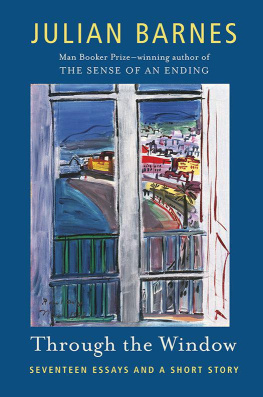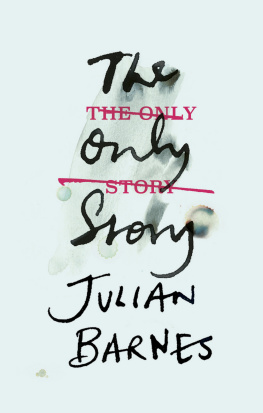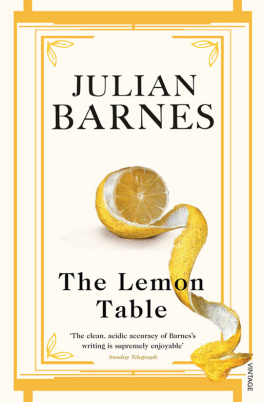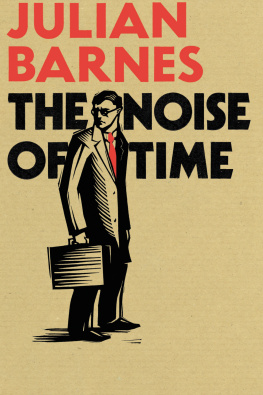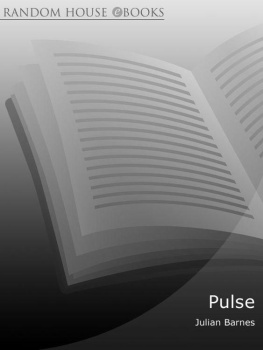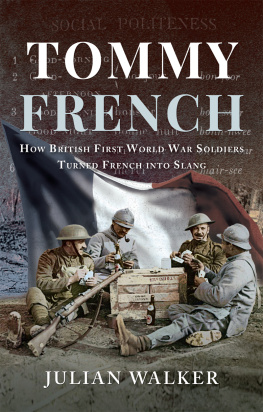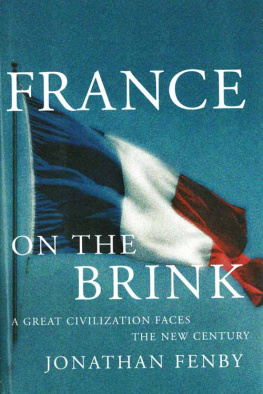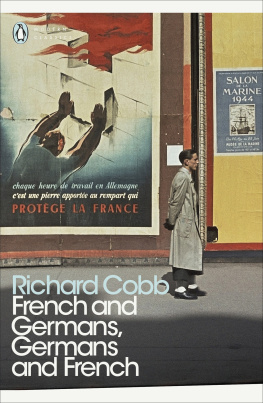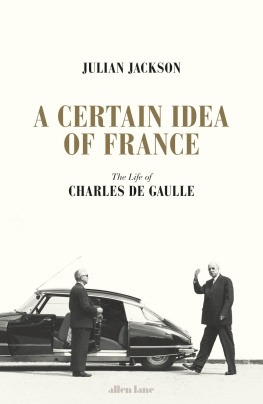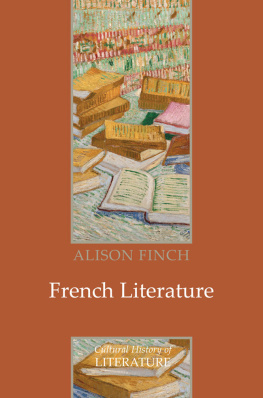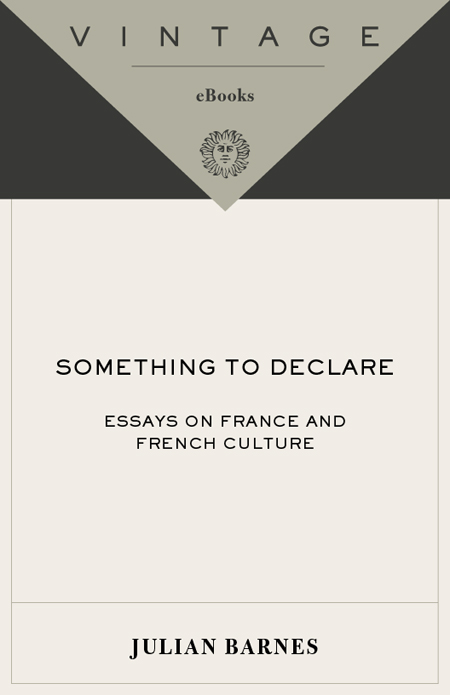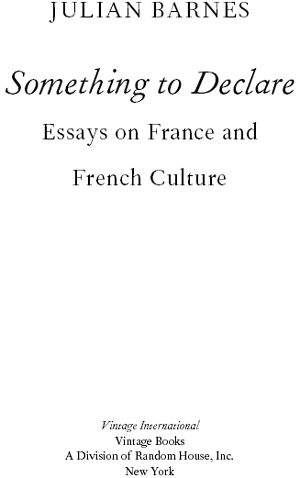Born in Leicester, England, in 1946, Julian Barnes is the author of nine novels, a book of stories, and a previous collection of essays. His work has been translated into more than thirty languages. In France he is the only writer to have won both the Prix Mdicis and the Prix Fmina, and in 1988 he was made a Chevalier de l'Ordre des Arts et des Lettres. He lives in London.
A. L. B.
K. M. B.
Illustrations
2 A typical Ultimate Peasant
16 Jacques Brel, Lo Ferr, Georges Brassens
32 Poster for A bout de souffle ( Canal+)
44 Recipe from Italian Food by Elizabeth David
( Estate of Elizabeth David)
58 The Pont du Gard, near Nmes (H. Armstrong Roberts)
72 Memorial to Tom Simpson, Mont Ventoux
92 Georges Simenon, 1930s
(Simenon Foundation, University of Lige)
102 Stphane Mallarm (Editions du Seuil)
136 Flaubert's death-mask (Bibliothque Nationale de France)
160 Louise Colet in riding costume, by Courbet
180 Alphonse Karr in his garden at Saint-Raphal
196 Turgenev at forty
202 George Sand, by Nadar (Flix Nadar, Arch. Phot.
Centre des Monuments Nationaux, Paris)
220 Prussians in the studio of a Rouen photographer
(Collection of the Bibliothque Municipale de Rouen)
234 Caroline Commanville, Flaubert's niece
(Collection of the Bibliothque Municipale de Rouen)
250 Isabelle Huppert as Emma Bovary
( Thomas Klausmann)
268 J.B. at the tomb of G.F., Rouen, 1983 ( Julian Barnes)
Preface
I first went to France in the summer of 1959 at the age of thirteen. My pre-adolescence had been car-free and island-bound; now there stood in front of our house a gun-metal-grey Triumph Mayflower, bought secondhand, suddenly affordable thanks to a 200 grant from Great Aunt Edie. It struck me thenas any car would have doneas deeply handsome, if perhaps a little too boxy and sharp-edged for true elegance; last year, in a poll of British autophiles, it was voted one of the ten ugliest cars ever built. Registration plate RTWi, red leather upholstery, walnut dashboard, no radio, and a blue metal RAC badge on the front. (The RAC man, portly and moustachioed, with heavy patched boots and a subservient manner, had arrived to enrol us. His first, preposterous question to my fatherNow, sir, how many cars have you got?passed into quiet family myth.) That cars were intended not just for safe commuting but also for perilous voyage was endorsed by the Triumph's subtitle, and further by its illustrative hubcaps: at their centre was an emblematic boss depicting, in blue and red enamel, a Mercator projection of the globe.
Our first expedition was from suburban Middlesex to provincial France. At Newhaven we watched nervously as the Mayflower was slung by crane with routine insouciance over our heads and down into the ferry's hold. The metal RAC badge at the front was now matched by a metal GB plate at the rear. My mother drove; my father map-read and performed emergency hand-signals; my brother and I sat in the back and worried. Over the next few summers we would loop our way through different regions of France, mostly avoiding large cities and always avoiding Paris. We would visit chteaux and churches, grottoes and museums, inducing in me a lifelong phobia for the guided tour. I was the official photographer, first in black-and-white (home processed), later in colour transparency. My parents tended to feature only when the view-finder's vista seemed dull; then, remembering the dictates of Amateur Photographer, I would summon them to provide foreground interest. We picnicked at lunchtime and towards five o'clock would start looking for a small hotel; the red Michelin was our missal. In those days, as soon as you left the Channel ports behind, the roads were empty of non-French cars; when you saw another GB coming in your direction, you would wave (though never, in our family, hoot).
That first, monstrous expedition into the exotic was a gentle tour of Normandy. From Dieppe we drove to Cany-Barville, of which I remember only two things: a vast and watery soup pullulating with some non-British grain or pulse; and being sent out on my first foreign morning for the newspaper. Which one did they want? Oh, just get the local one, my father replied unhelpfully. I had the normal adolescent's self-consciousnessthat's to say, one that weighs like a stone-filled rucksack and feels of a different order from everyone else's. It was a heroic journey across the street and towards the shop, imperilled at every step by garlic-chewing low-lifes who drank red wine for breakfast and cut their bread and youngsters' throatswith pocket knives. Le journal de la rgion, I repeated mantrically to myself, Le journal de la rgion, le journal de la rgion. I no longer remember if I even uttered the words, or just flung my coins at some nicotined child-molester with a cry of Keep the change. All I remember is the purity of my fear, the absoluteness of my embarrassment, and the lack of vivid praise from my parents on my safe return.
From Cany-Barville to Thury-Harcourt: did all French villages have such solemn hyphenation? None of that Something-upon-Whatsit, Thingummy-in-the-Tum-Tum. Cany-Barville, Thury-Harcourt: this was different, grave. Thereafter, my memories become slighter, more banal; perhaps not even memories, but half-forgotten impressions revived by photographs. A brown-beamed coaching inn, a rough-fleeced donkey in a rough-grassed park, my first squat French chteau with pepperpot towers (Combourg), my first soaring ditto (Josselin). Then first viewings of Chartres, the Bayeux Tapestry, and Chateaubriand's aqueous tomb. On the tranquil roads we mingled with traffic of lustrous oddity. French cars were very unMayflowery: curved in the weirdest places, coloured according to a different palette, and often formidably eccentric witness the Panhard. They had corrugated butchers' vans, Deux Chevaux with canvas stacker seats, Maigret Citrons, and later the otherworldly DS, whose initials punned on divinity.


